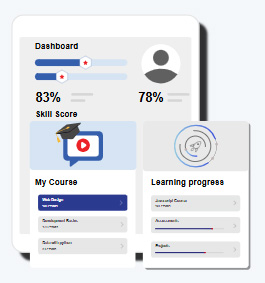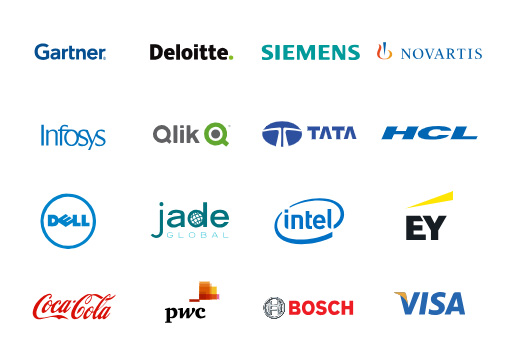MS Azure Online Training

- Learn & practice Course Concepts
- Course Completion Certificate
- Earn an employer-recognized Course Completion certificate by Ziventra.
- Resume & LinkedIn Profile
- Mock Interview
- Qualify for in-demand job titles
- Career support
- Work Support

Microsoft Azure Online Training Content
You will be exposed to the complete VMware View Training course details in the below sections.
Topic-wise Content Distribution
Introduction to Azure Architecture
- Overview of Microsoft Azure and its services
- Understanding cloud computing models (IaaS, PaaS, SaaS)
- Azure regions, availability zones, and resource groups
- Setting up an Azure subscription and navigating the Azure portal
Designing Azure Compute Solutions
- Overview of Azure Virtual Machines and VM scaling
- Designing and deploying Azure App Services and App Service Plans
- Understanding Azure Kubernetes Service (AKS) and container-based workloads
- Configuring Azure Functions and Azure Logic Apps for serverless computing
Designing Azure Networking Solutions
- Implementing Virtual Networks (VNets) and Subnets
- Designing and configuring Network Security Groups (NSGs)
- Configuring VPN Gateways, ExpressRoute, and Azure Load Balancers
- Implementing Azure Firewall, Web Application Firewall, and Traffic Manager
Azure Storage Solutions Design
- Overview of Azure Storage: Blob Storage, Disk Storage, and File Storage
- Designing and configuring Azure Storage accounts
- Implementing Azure Backup and Azure Site Recovery for disaster recovery
- Data redundancy options: Locally Redundant Storage (LRS) vs. Geo-Redundant Storage (GRS)
Azure Security and Identity Management
- Implementing Azure Active Directory (Azure AD) for identity and access management
- Configuring Multi-Factor Authentication (MFA) and role-based access control (RBAC)
- Managing Azure Key Vault for secrets, keys, and certificates
- Designing Azure security policies and network security
Designing Azure Data Solutions
- Overview of Azure SQL Database, Cosmos DB, and NoSQL databases
- Designing data storage solutions for performance and scalability
- Configuring Azure Data Factory for data integration and transformation
- Implementing Azure Synapse Analytics for data warehousing and analytics
Monitoring and Managing Azure Resources
- Implementing Azure Monitor and Azure Log Analytics
- Configuring Azure Alerts and Action Groups
- Using Azure Automation for resource management and scaling
- Monitoring and optimizing performance using Azure Cost Management
Designing for High Availability and Disaster Recovery
- Designing and implementing Azure Availability Sets and Availability Zones
- Implementing load balancing and geo-replication for high availability
- Designing disaster recovery solutions using Azure Site Recovery
- Creating backup strategies for Azure Virtual Machines and data
Advanced Networking and Security in Azure
- Implementing Hybrid Cloud solutions with Azure Arc
- Configuring Azure Bastion for secure remote access
- Advanced network architectures: Hub-and-Spoke, NAT Gateway, Application Gateway
- Azure Firewall, Azure Security Center, and Threat Protection for enhanced security
Azure Certification Exam Preparation
- Review key topics for AZ-303 and AZ-304 certification exams
- Practice tests and quiz sessions with exam-style questions
- Mock exams and study strategies to ensure exam success
- Tips and techniques for passing the Azure Architect certification exams
Request More information
Hands on Microsoft Azure Projects
Our Microsoft Azure Training course aims to deliver quality training that covers solid fundamental knowledge on core concepts with a practical approach. Such exposure to the current industry use-cases and scenarios will help learners scale up their skills and perform real-time projects with the best practices.
Training Options
Choose your own comfortable learning experience.
On-Demand Training
Self-Paced Videos
- 30 hours of Training videos
- Curated and delivered by industry experts
- 100% practical-oriented classes
- Includes resources/materials
- Latest version curriculum with covered
- Get one year access to the LMS
- Learn technology at your own pace
- 24×7 learner assistance
- Certification guidance provided
- Post sales support by our community
Live Online (Instructor-Led)
30 hrs of Remote Classes in Zoom/Google meet
- Live demonstration of the industry-ready skills.
- Virtual instructor-led training (VILT) classes.
- Real-time projects and certification guidance.
For Corporates
Empower your team with new skills to Enhance their performance and productivity.
Corporate Training
- Customized course curriculum as per your team’s specific needs
- Training delivery through self-Paced videos, live Instructor-led training through online, on-premise at Mindmajix or your office facility
- Resources such as slides, demos, exercises, and answer keys included
- Complete guidance on obtaining certification
- Complete practical demonstration and discussions on industry use cases
Served 130+ Corporates

Our Training Prerequisites
Prerequisites for MZ Azure Architect Online Training:
- Basic Cloud Computing Knowledge
- Familiarity with cloud computing concepts such as IaaS, PaaS, and SaaS
- Understanding of cloud models: public, private, and hybrid cloud environments
- Experience in IT and System Administration
- Basic knowledge of system administration and networking
- Familiarity with Linux, Windows, or other server operating systems
- Experience with Networking Concepts
- Understanding of basic networking principles such as IP addressing, subnets, routing, and firewalls
- Knowledge of DNS, VPN, and Load Balancers is helpful for Azure network configuration
- Virtualization Experience
- Familiarity with virtualization technologies like VMware or Hyper-V
- Understanding of virtual machines (VMs) and cloud computing environments
- Basic Programming Knowledge (Optional)
- Familiarity with scripting languages like PowerShell or Bash is helpful for automating tasks in Azure
- ARM templates or Terraform knowledge is a plus for Infrastructure-as-Code (IaC) tasks
- Familiarity with Microsoft Tools
- Experience using Microsoft Windows Server, Active Directory, and Microsoft SQL Server can be beneficial
- Basic understanding of Azure Active Directory (AAD) and identity management services
- Basic Understanding of Databases
- Familiarity with relational databases (e.g., SQL Server, MySQL) and NoSQL databases will help when working with Azure SQL Database or Cosmos DB
- Willingness to Learn and Dedicate Time
- Strong willingness to engage in hands-on learning and practice real-world Azure solutions
- Time commitment for completing practical labs and assignments
Talk to our team directly
Schedule A Free Consultation
